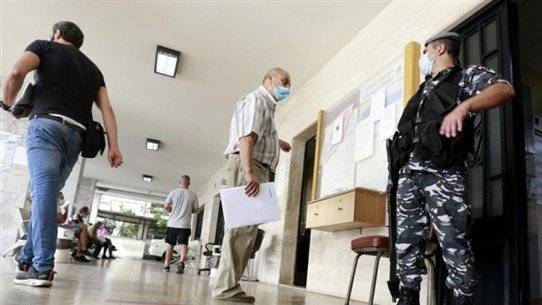With temporary and meager aid, the authorities succeeded in suppressing the public sector employees' strike after a month and three weeks since its launch. It was revealed yesterday that a significant proportion of workers in the sector have returned to their jobs in compliance with the directive mandating their attendance for at least two days. The majority of those who returned from the strike live close to their workplaces, meaning the costs they incur can be covered by the financial assistance and transportation allowance, despite their minimal amounts, or they returned out of fear and in response to pressures exerted on them.
Despite the announcement from the employees' union to continue the open-ended strike, it no longer has the capacity to enforce the decision meant to defend the rights of public sector workers. The return to work and presence in the administrations has disrupted this unorganized protest movement, revealing a belief among employees that they do not have a chance to attain their rights. This belief drove them to opt for returning from the strike and refraining from following the union's decision, especially since they had initiated the strike after their purchasing power diminished, rendering them unable to fund their commute to work. Thus, the strike was not born from a conviction that the union truly represented the employees and their interests.
It was noted yesterday that in the ministries of health, finance, labor, agriculture, and civil registries, attendance rates increased compared to other departments, while those in the Ministry of Education continued to abide by the strike. This partial return is considered a breach of the employees' ranks, orchestrated by the authorities represented by three key figures along with the gathering of general directors; Prime Minister Najib Mikati, Finance Minister Youssef Khalil, and Labor Minister Mustafa Bayram played a pivotal role in bringing down the open-ended strike. They employed the principal argument that an open-ended strike cannot be executed in the context of a state bankruptcy, as any wage corrections can only be financed through social aid – meaning temporary and minimal increases compared to the price inflation.
The outcome of this effort was limited to granting employees slight temporary gains based on the basic salary, financial assistance equivalent to a full month’s salary, a daily transportation allowance of 95,000 Lebanese pounds on the condition of attending at least two days, as well as a "productivity compensation" or "incentive salary" for each actual day of attendance to work in public administrations and the State Employees Cooperative for the months of August and September. The idea of the incentive salary is also fragmented; it will start at 150,000 pounds for employees in Category 5 and similar contractors, capping at 350,000 pounds for employees in Category 1, and it will be provided only for the months of August and September. Naturally, this incentive salary, social assistance, and transportation allowance are contingent upon the employee attending work for at least three days.
Furthermore, Mikati and the other ministers tasked the general directors with taking administrative and disciplinary actions, including referrals to the Central Inspection Authority and the High Disciplinary Board, against any employees who fail to attend without a legal justification for at least two days, and applying the provisions of the employee system against anyone who is absent without justification for more than 15 days, thus considering them resigned from service. They also asked the Central Inspection Authority to monitor all relevant parties to ensure these procedures are implemented. Sources from “Al-Akhbar” indicated that pressure and threats were indeed faced by employees in the ministries of finance, social affairs, and agriculture.
In clearer terms, employees went on strike and resumed work independently of the union's decision. Those still on strike are often from relatively distant areas from their workplaces, and the costs of their commute exceed what the ministerial committee has offered. Amidst this struggle with the authorities, employees began discussing issues concerning the weakness of the Employees' Union and the need to internalize their organizational matters by holding new elections in preparation for the inevitable confrontation with the authorities at the end of August and September. The authorities gained a dual victory from this process by dissolving the strike along with employees' demands and enhancing their chances of approving the “customs dollar” under the pretext of funding the financial aid they have passed, although the production compensation or incentive salary is only for two months. In practice, the idea of an open-ended strike has collapsed, representing the maximum escalation employees could have reached.
### Complaint to International Authorities
The Employees' Association filed a complaint with international bodies concerned with human and labor rights regarding the intervention by the Prime Minister and his ministers to end the strike, specifically regarding the threats of disciplinary actions included in the terms. The union's president, Nawal Nasr, preferred to monitor the attendance rates in public institutions and administrations in the coming days before concluding that the strike failed from day one, anticipating violations similar to what occurred yesterday. However, Nasr confirmed that several employees who returned to their offices reported to the union that they borrowed money for their commute and expressed concerns regarding the authorities' adherence to their commitments or payments within the expected time frames, similar to past instances when the social assistance payment was delayed.




